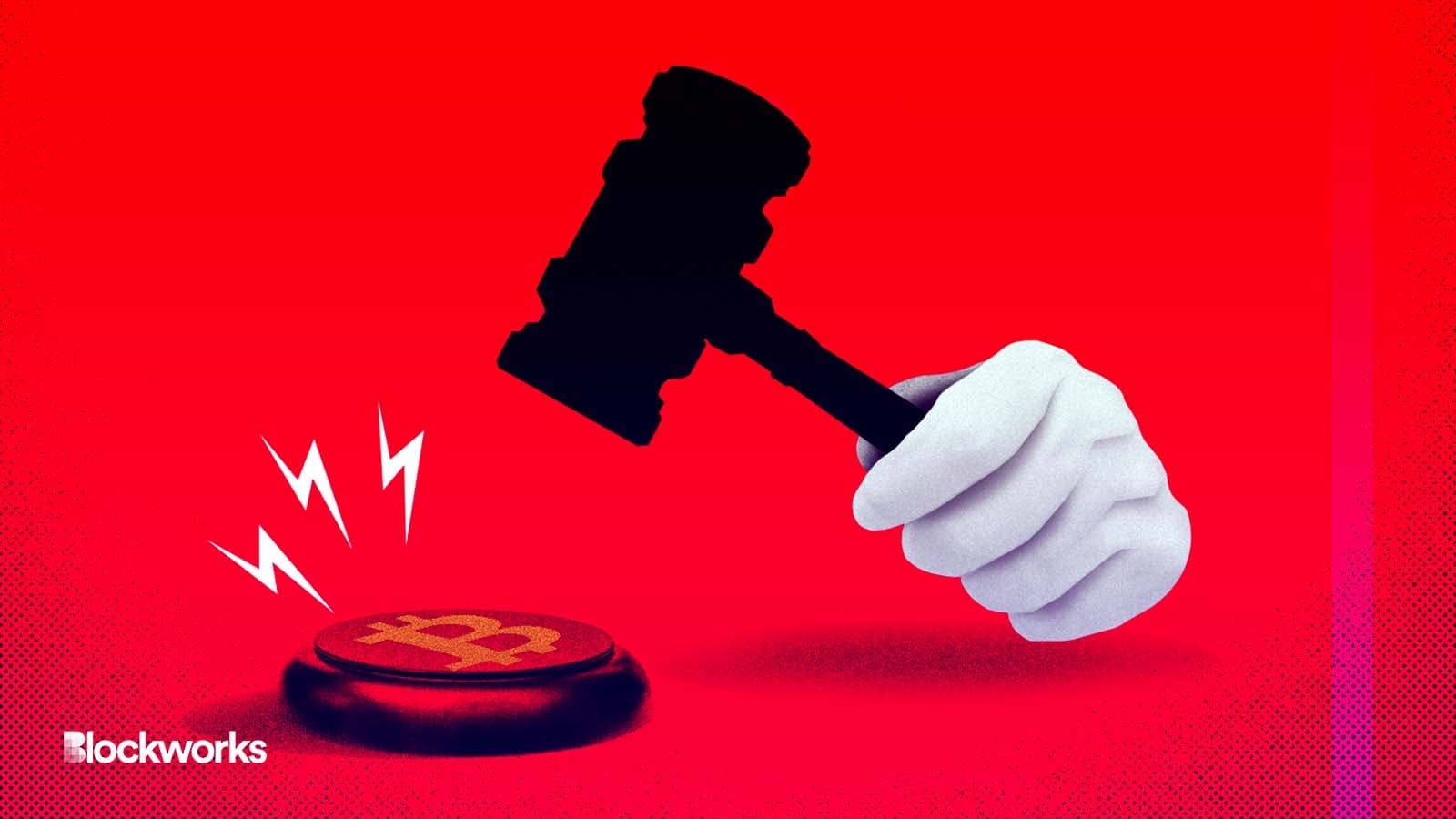Crypto Custodians Must Separate Customer, Corporate Assets: NY Regulator
Crypto custodians should not establish a debtor-creditor relationship with customers, New York’s Department of Financial Services says

Blockworks exclusive art by Axel Rangel
As bankruptcies continue plaguing the crypto segment, New York’s Department of Financial Services (NYDFS) is urging crypto custodians to separate corporate and customer assets, among other measures.
New guidance from NYDFS Superintendent Adrienne Harris published Monday states that custodians of digital assets should “separately account for, and segregate” a customer’s assets from those owned by the company — both on-chain and on the custodian’s internal ledger accounts.
The latest guidance also expects that crypto custodians should only receive customer assets “for the limited purpose of carrying out custody and safekeeping services, and that it will not thereby establish a debtor-creditor relationship with the customer.”
The suggestions are meant to better protect customers in the event of an insolvency, or a similar proceeding, the regulator said.
FTX, which filed for bankruptcy in November, allegedly co-mingled funds with affiliated trading firm Alameda Research. FTX founder Sam Bankman-Fried earlier this month pleaded not guilty to charges that include wire fraud, money laundering and violating campaign finance laws.
New York’s virtual currency regulation already requires entities to protect customer assets, maintain comprehensive books and records, properly disclose custody service terms and refrain from misleading customers.
“DFS’s virtual currency regulation has protected New Yorkers since 2015,” Harris said in a statement. “Today’s guidance reminds DFS-regulated virtual currency companies of our expectations regarding the safekeeping of customer assets.”
The New York regulator last month began requiring state-regulated banks to apply for approval before engaging in digital-asset related activities.
More recently, the NYDFS earlier this month found Coinbase violated anti-money laundering laws in 2018 and 2019. The exchange agreed to pay a $50 million fine and $50 million more to go toward its compliance practices.
A day later, New York Attorney General Letitia James filed a civil lawsuit alleging that ex-Celsius CEO Alex Mashinsky made false and misleading statements about the company’s safety to encourage investors to deposit digital assets onto the platform.
Celsius initiated bankruptcy proceedings in July, about a month after it halted withdrawals, citing “extreme market conditions.”
BlockFi filed for bankruptcy just days after FTX’s collapse. Filings revealed that BlockFi has roughly 100,000 creditors with $1 billion to $10 billion in liabilities and assets.
Genesis became the latest crypto company to go the bankruptcy route, doing so last week. The firm had halted customer withdrawals in November after the unraveling of FTX, where it had $175 million in locked assets.
Genesis was Gemini’s partner for its recently-terminated Earn program, which allowed rewards of up to 8% to customers who lent cryptoassets to Genesis. Gemini co-founder Cameron Winklevoss has said Genesis is owed $1.675 billion by parent company Digital Currency Group — a point DCG CEO Barry Silbert has denied.
Tyler Winklevoss said last week that the NYDFS, which supervises Gemini, would be the trustee of Gemini’s bankruptcy estate in such a case. Assets in the Gemini stablecoin (GUSD) reserve are held in accounts separate from Gemini’s business and are not “property” of the company.
Get the news in your inbox. Explore Blockworks newsletters:
- The Breakdown: Decoding crypto and the markets. Daily.
- 0xResearch: Alpha in your inbox. Think like an analyst.






